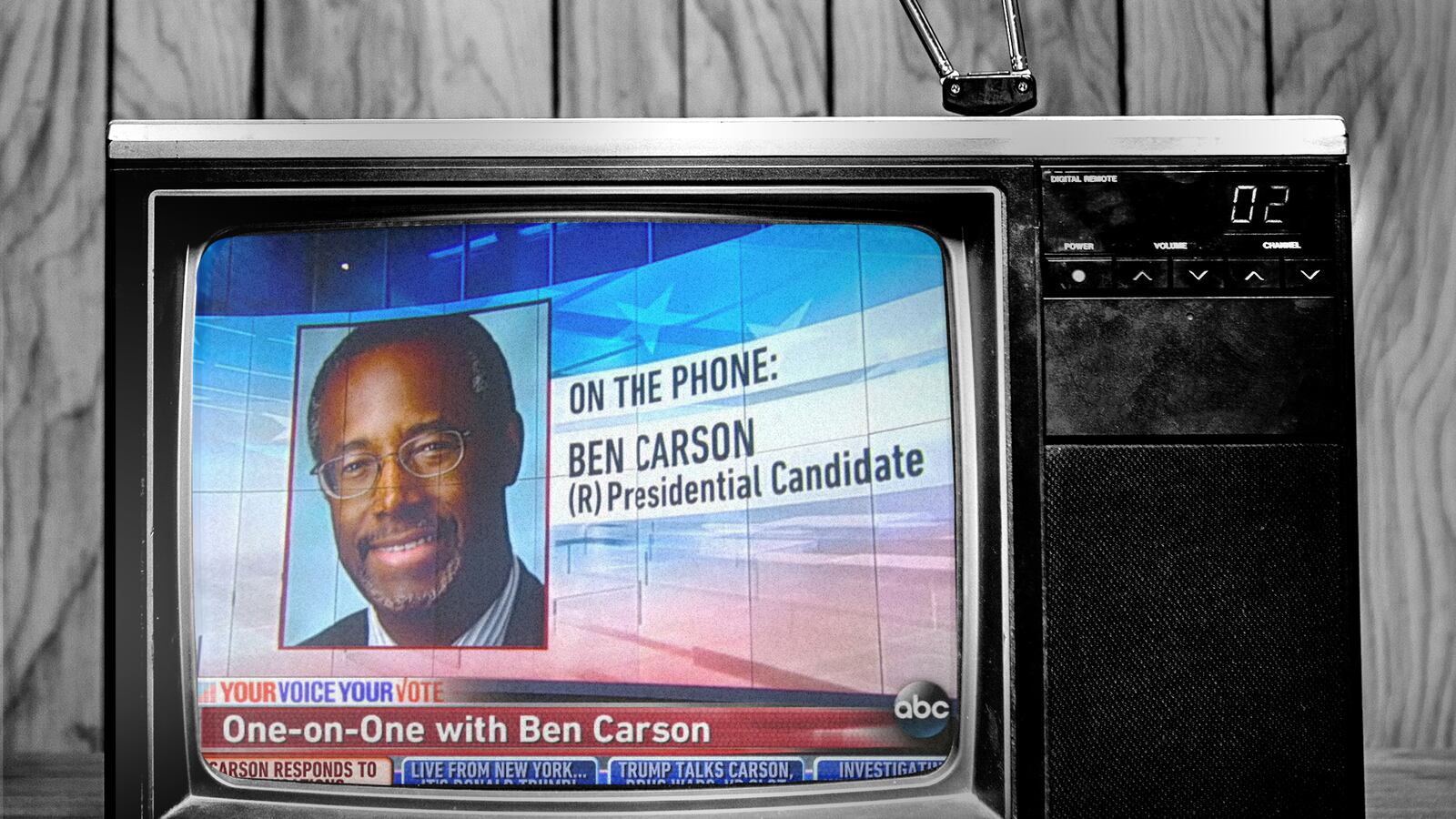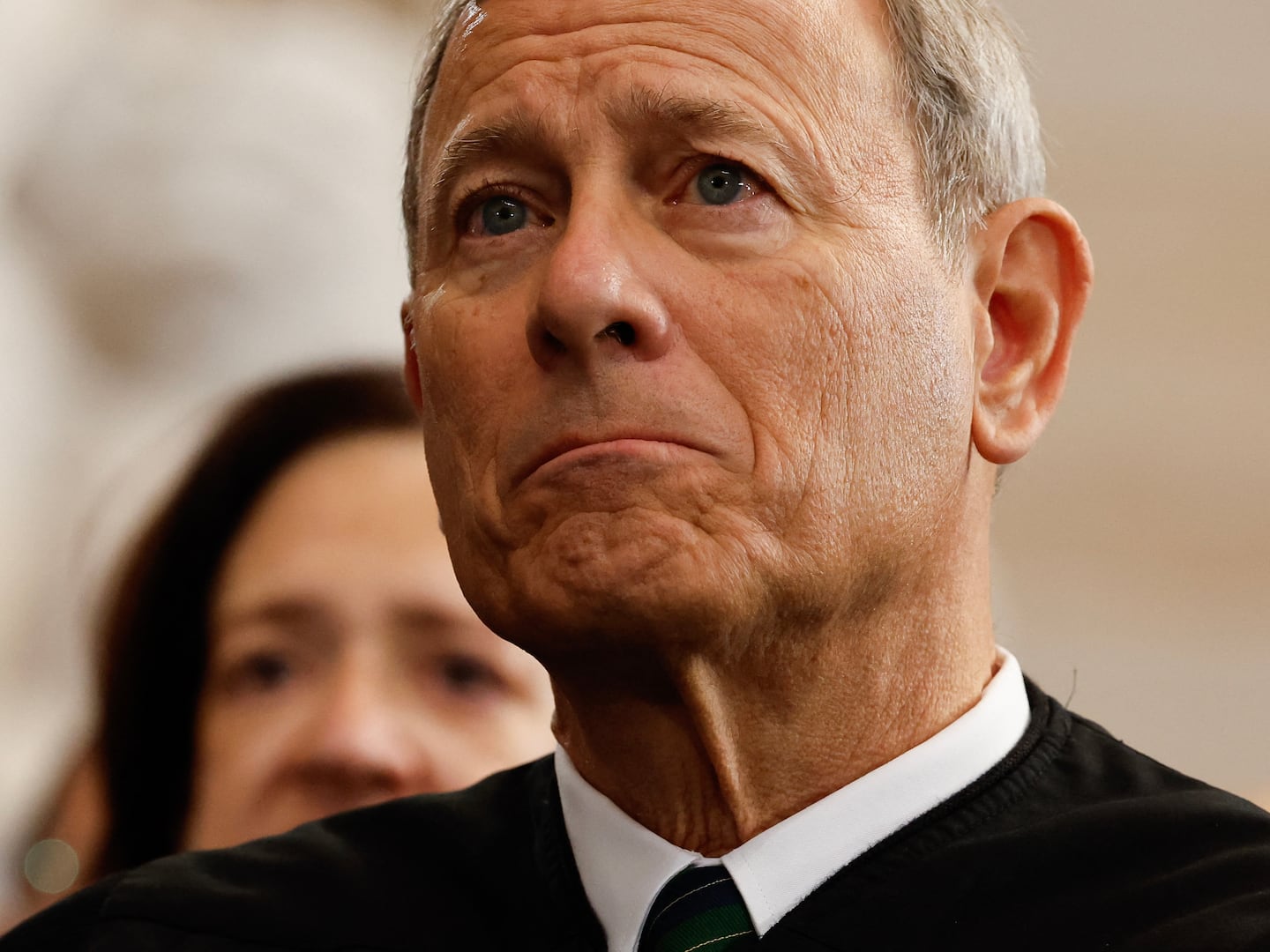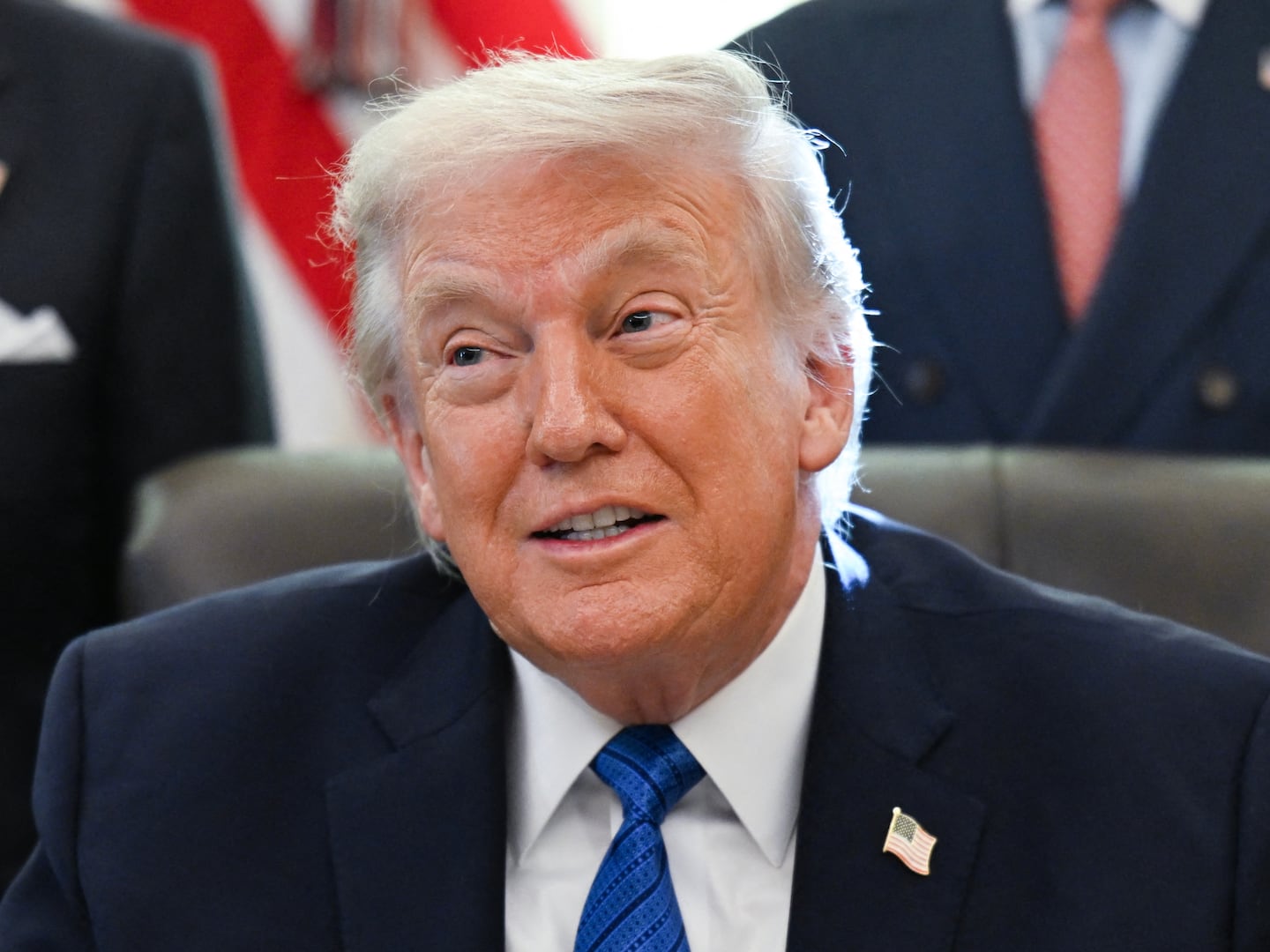By Linda Qiu and Lauren Carroll
Ben Carson’s position in the polls is drawing increased scrutiny into his personal history and past statements, including whether he was offered a scholarship to attend West Point.
Carson has claimed in the past that he was offered a full scholarship to attend the United States Military Academy. But all cadets admitted to West Point attend tuition free—meaning that everyone receives what amounts to a full scholarship. And in Carson’s case, he never applied for admission.
Carson sought to clarify the story over the weekend, telling The New York Times, “It was, you know, an informal ‘with a record like yours we could easily get you a scholarship to West Point.’”
On ABC’s This Week, Carson defended his description of events when pressed by host George Stephanopoulos.
“Wait a minute, George, go look on the West Point website and you’ll see those specific words, ‘full scholarship to West Point,’” Carson said. “So even though it is, you know, given as a grant for anybody who gets in, those words are used. And if a recruiter or somebody who’s trying to get you to come there or trying to get you to do that, those are the very words they will use. It’s on their website.”
Carson’s claim rates Mostly True.
Searching for the specific words “full scholarship to West Point” turned up no results on West Point’s own website or on Google.
The official admissions page also makes no mention of a scholarship of any kind. Instead, it simply notes that tuition, room and board, and expenses are fully paid for those who are selected to attend West Point.
Carson’s spokesperson told us that West Point has referred to its benefits as a full scholarship in publications, a point Carson made in a Nov. 8 Facebook post. He uploaded two West Point recruitment ads targeted at African-Americans that contain the word “scholarship,” including one from the 1960s, when he was a student.
We did find examples of the words “full scholarship” used in publications that are linked on West Point’s website, as well as some old recruiting advertisements.
A dataset from 2014 says that “at the United States Military Academy all students receive a full scholarship, including room & board and medical- and dental-care are provided by the U.S. Army.”
A prospectus from 2012 says that “as a cadet, you are a member of the U.S. Army and receive a full scholarship and an annual salary of more than $10,000 from which you pay for your uniforms, textbooks, a laptop computer, and incidentals.”
Also, the financial benefits to attending military academies have been described as scholarship-like or equivalent to a scholarship by USA Today, a West Point spokesperson in Forbes, and the Naval Academy.
Still, the term “full scholarship” is an inaccurate description, experts told us. The phrase typically refers to a college providing financial aid to allow a candidate to attend a college free of charge, but that doesn’t really apply to West Point’s across-the-board zero-tuition policy, said Antonio Buehler, a West Point alumnus who founded the admissions coaching service Abrome.
“No such scholarship is named. Every cadet is treated the same, and there is an eight-year military commitment after graduation. Hence, not free,” Buehler said.
The proper terminology is “appointment,” said Vu Tran, a graduate of the United States Air Force Academy who runs the Denver-based admissions consulting firm Service Academy Coach. But because that’s not apparent from the get-go, Tran says he can’t fault Carson for using the term loosely, albeit incorrectly.
“I can definitely see where parents and students who are beginning the process can misconstrue it to be a scholarship,” Tran said. “But for those who have gone through the admissions process and through the nomination process, they would never call it a scholarship.”
Carson’s use of the words “full scholarship” is even more inaccurate if he’s describing his own experience, experts agreed. Tran told us it’s conceivable a ROTC commander or even a general would encourage a student to apply to West Point, touting the free tuition, but noted that anyone familiar with the process understands that that’s contingent upon nomination and acceptance.
“[Carson] would not have been ‘offered’ the opportunity to attend West Point at no cost, like all other cadets, until he applied and received an appointment, which he never did,” Buehler said.
Trump polling numbers
Polls show that Americans think Donald Trump has the best leadership skills out of the 2016 candidates, according to the real estate mogul himself.
On CNN’s State of the Union, host Jake Tapper asked Trump why voters should pick him to be their president.
“I’m the one who’s going to make this country great again,” Trump responded, adding, “When you do polls, and in fact when CNN does polls, you look at my numbers on leadership, it’s two and three and four times higher than anybody else.”
Trump’s claim rates Half True.
Only a few polls so far have asked about candidates’ leadership qualities, but Trump has a point that he usually comes out on top.
One poll in particular, conducted for The Washington Post and ABC, supported Trump’s claim. The poll asked Republican-leaning respondents who among six candidates is the strongest leader. Nearly half of respondents, 47 percent, selected Trump.
Twelve percent said former Florida governor Jeb Bush, followed by Florida Sen. Marco Rubio (11 percent), Carson (9 percent), Texas Sen. Ted Cruz (8 percent), and former Hewlett-Packard CEO Carly Fiorina (6 percent).
But the margin shrinks in other polls that measured leadership qualities. Most polls have asked respondents to say whether each individual candidate has strong leadership qualities—not comparing the candidates against each other. In these polls, Trump beats out his opponents by a handful of percentage points, not two, three, or four times higher.
Aaron Sharockman contributed to this report. Read the full fact-checks at PunditFact.com.






